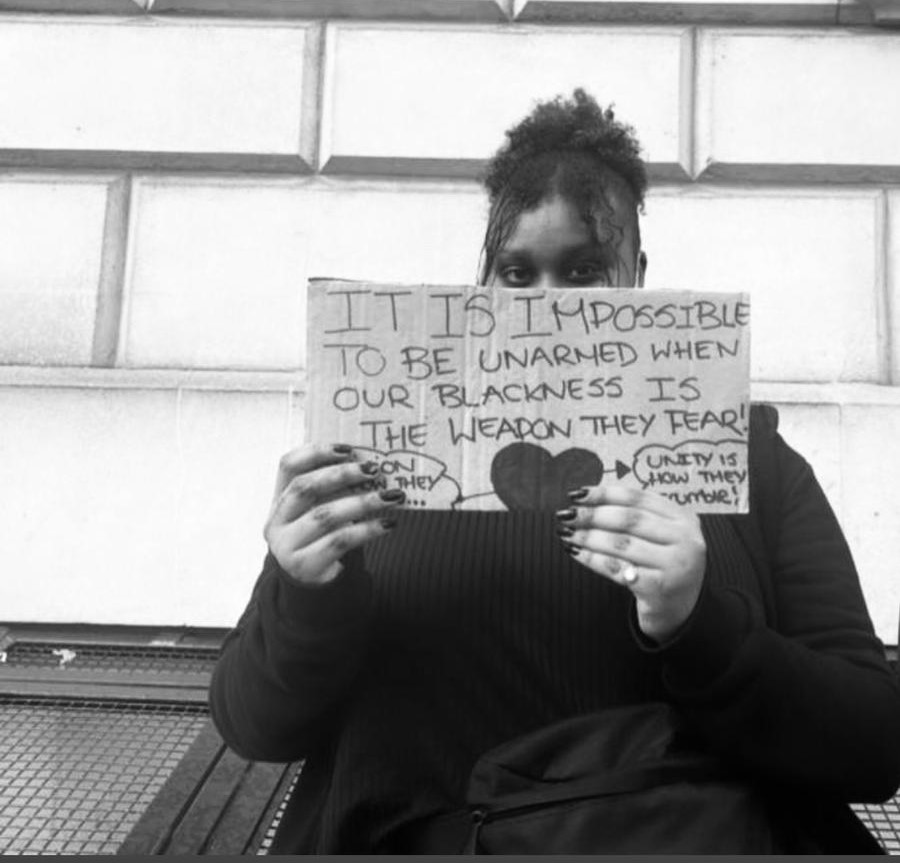Dear All
We are sure that all of you will be aware of the current issues affecting our BAME communities. From the tragic murder of George Floyd, to the ensuing protests, and the over-representation of the BAME community in hospitalisations and deaths linked to COVID 19.
Of course, as many of you will be aware, although these specific situations are new, they are merely a foregrounding of the vast inequalities and hardships that our BAME communities face on a day to day basis.
NSPC stand in solidarity with our BAME students, and wider communities at this time, and always.
But solidarity can only get us so far. We are acutely aware that passive ally-ship is simply not enough, and that we must ensure that we are actively fighting for a better, safer and more inclusive culture.
This is why we have taken the following steps:
- Since lockdown, NSPC have taken part in a private consultation with the London Deputy Mayor's Office about the mental health impact of COVID-19 on the BAME community, reflecting back the specific challenges we are aware of in making psychotherapeutic services accessible in the aftermath of lockdown. We are in ongoing contact with the Deputy Mayor on these issues.
- We are committed to ensuring that the helping professions are representative - something which has been a particular problem in both academia and psychotherapy in the UK. As part of this, we are looking at how to nurture diverse voices within the field and continue to ensure that we have inclusive recruitment policies that enable BAME voices to have a platform.
- We are currently working on our new MA in Working with Diversity which contains modules on ethnicity as well as disability, ageing, sexuality and gender. In this way we hope to provide important training on diversity to the wider community. Specifically, we aim to progress understanding of how race gets socially constructed, why it opens the door to conflict and discrimination, and why fear, hate, and envy are so often provoked by these dynamics.
- We have implemented our touch points for ethnicity as well as the other protected characteristics as identified by the UK government. If you need to access a safe space to discuss any of these matters, the touch point for ethnicity as well as religion and belief is Dr Nancy Hakim Dowek (nancy.hakim@nspc.org.uk)
- As part of student feedback, we have made an effort to ensure that reading lists include more BAME (and female) authors. This can be difficult to do, as history is written by and favours those who hold power. We continue to address these very real issues, and would like to continue to encourage students to bring suggestions to the boards of studies in order to achieve this.
- We have appointed a member of staff to ensure that our speaker recruitment for events/conferences is inclusive - this has specifically been addressed in terms of ethnicity and not solely gender.
- We are delighted that many of our students have chosen to write about topics related to these issues, and we would particularly like to encourage those voices to be heard - by feeding into our course offerings, and by providing guidance on publishing. If you have something particular to offer in relation to issues affecting the BAME community please do come forward so that we can consider how to best find a platform for your voice and your contribution.
We also feel that it is important to signpost our staff and students to resources that can help them to learn more about Black Lives Matter, anti-racism, and how allies can usefully and practically help:
UK Black Lives Matter @UKBLM
UK Black Pride @ukblackpride
Coalition for Racial Equality and Rights @crer_scotland
The Anti-Racist Educator @AntiRacistEd
http://www.pcsr.org.uk/resources-for-examining-whiteness-and-racism/
Yours in solidarity.
Sasha van Deurzen-Smith
on behalf of the NSPC Team

